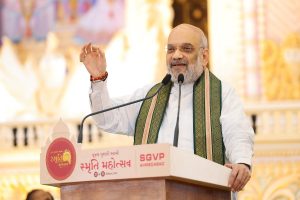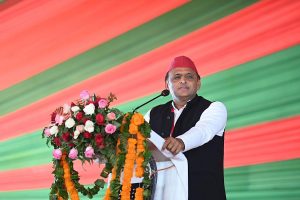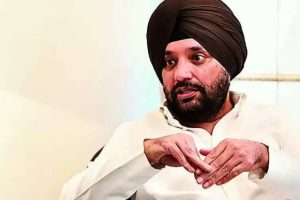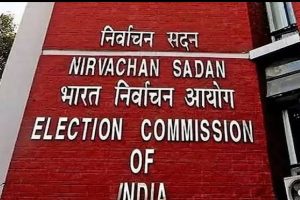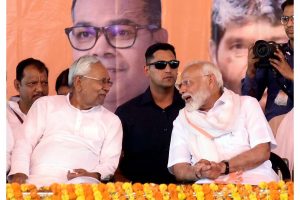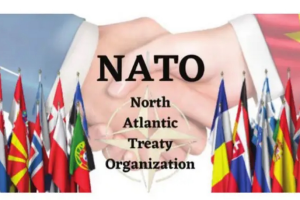Towards the end of 2015, just days after Bidya Devi Bhandari was sworn in as Nepal’s second president, I found myself in a Baglung village talking to a couple of school-aged girls about it. Although hailing from the Kathmandu constituency both she and her late husband have represented in parliament, I was no fan of Bhandari’s for the manner in which she had worked in concert with her close ally, KP Sharma Oli, the current prime minister, to undermine the post-2006 progressive agenda. For the young girls in Baglung though, the excitement at witnessing something historic was palpable. When they said that Bhandari’s achievement proved that girls are capable of achieving any and everything, they meant it literally for such was the symbolic power of her elevation to the country’s top post.
That was how it should have been—an epoch-making accomplishment to be nurtured for posterity, a beacon of hope for all girls struggling against the deep-seated patriarchy in our society. Instead, the president has managed to have her name dragged through the muck in her role as arguably the most active enabler of Prime Minister Oli in his many actions of dubious impropriety, and illegality, as the Supreme Court has pronounced by now. Bhandari’s name will remain forever tarred, and, for that, she will have no one to blame but her close pal and the unnatural haste with which she sanctioned everything he placed before her.
Granted that heads of state in a parliamentary system have the unenviable distinction of serving as rubber stamps to the executive branch of government. But they are also allotted certain discretionary powers to stall and counsel – provided they want to use them. In the case of Nepal, we have had the other extreme when, in 2009, President Ram Baran Yadav flatly rejected on a legal technicality then-Prime Minister Pushpa Kamal Dahal Prachanda’s move to sack the army chief.
Bhandari, on the other hand, has remained consistently mum when presented with a series of controversial cabinet decisions. In fact, she even appears to have indulged in petty subterfuge such as not allowing the anti-Oli faction of the ruling party from even registering with her office, as constitutionally mandated, the signed petition by members of parliament asking for the house be called back into session. When the time comes, that blatant attempt to stymie the democratic process should be thoroughly investigated in order to prevent future misuse of presidential powers whether by Bhandari or by any of her successors.
Like Bhandari, Oli, too, had a chance to leave an indelible imprint on the country, and not in the negative way he will forever be portrayed in the history books. Tasked with overseeing the country’s transition to a federal system, and granted carte blanche power through popular vote over the three tiers of government, he bungled thoroughly. And all because he appears to have had not a clue about how to go about the business of governance. Concentrating all power in his office and restricting himself to a small band of unelected advisers while most of the ministers were not even able to meet him, Oli’s three-year tenure has been one of a series of bombast, and nothing more.
To understand how Oli functions, a recent article by Ghanshyam Bhusal is revealing. A prominent member of Oli’s party as well as an outspoken critic of his, Bhusal had been appointed Minister for Agriculture but had resigned in the wake of the crisis engineered by Oli and Bhandari. As is his wont, Oli could not resist ridiculing Bhusal’s performance as minister. Bhusal’s long rebuttal makes for entertaining reading, and I present below a paraphrased translation of a section that is both amusing and disturbing.
One winter day Bhusal was asked to show up at the prime minister’s residence with the full contingent of departmental and divisional heads to brief Oli on his ministry’s activities. The team went fully prepared complete with a presentation consisting of 48 slides. The Secretary had only just begun the briefing when the prime minister launched into a half-an-hour-long spiel he is famous for. Another long speech followed the first slide. They managed to go through just three or four slides that day, with each serving as a prelude to lengthy intercessions by the prime minister consisting of what he had seen of agricultural developments on his trips abroad; what he had heard; idiomatic expressions; what the previous government had failed to do; the importance of Nepal’s climate on agriculture growth; the government’s desire to increase productivity and on development; some Rajbanshi woman Oli had given a thousand rupees to and how she had prospered by engaging in business; his philosophy on development that it means making the maximum use of something; and so on.
As Bhusal put it, there was not a single point in the extended lecture that was of any use to the Ministry. What is worrisome is that our prime minister’s behaviour at the highest levels of government appears to be no different from how he shows up before the general public. That he is wont to making long-winded speeches in lieu of any policy discussions is known but that his litany would consist of random thoughts regurgitated from memory perhaps explains why we are where we are as a country. If after making an ass of himself in the national parliament with outrageous statements and he can think highly of his performance, there is no reason to believe that there is a different Oli lurking somewhere blessed with the sagacity we so desperately need in an individual leading our country.
What is somewhat tragic right now, and funny at the same time, is that despite their ‘victory’ at the Supreme Court, the Prachanda- Nepal duo seem to be at a loss on how to deal with their nemesis. Their expectation that with the House of Representatives restored, Oli would feel morally bound to resign has been belied. Rather, they continue to be targeted by Oli with his taunts, a skill in which he is undoubtedly a past master.
That Oli continues to behave thus is the unfortunate result of his, and Bhandari’s, having ridden roughshod over accepted political norms. In the words of American law professor, Neil S. Siegel, ‘Political norms can be thought of as principles of right action that bind elected officials and serve to guide and control their conduct in office. Political norms prescribe standards of behaviour that all politicians should agree on and then comply with anyway — that is, regardless of whether other politicians comply with them.’
In other words, norms are what scream out ‘you just can’t do that’ or ‘that’s just wrong’ — even if legally permissible. The record over the past three years makes it clear that one cannot expect any regard for such norms from either the president or the prime minister. Siegel wrote his piece ‘in the spirit of encouraging Americans to insist “never again”’ in response to the norm-busting presidency of Donald Trump. Let us hope we will soon get our own chance to say the same once this Oli-Bhandari nightmare is over.
The Kathmandu Post/ANN.


